Been a while since I've visited round here as I haven't really had the time to do a lot of distilling. I was always interested in getting into brewing beer from scratch rather than the kits but was intimidated by the extra complexity from distilling. I ended up designing a brewery for a uni engineering project and decided to give it a shot. My first brew was done without purchasing any equipment as I had enough to make do with stuff from distilling. I used a boiler as a kettle and a condenser coil (one from a bokakob inline, not the one pictured) for a chiller and everything else was sitting around the house so thought it might be interesting for anyone else who wants to get into AG beers. The day I took pictures was probably the 4th brew I've done but the only piece of equipment I changed from the first bree was the chiller.
From the first lot of recipes tried it seems the most simple one was the most popular among my friends, I'm not even sure of what you would call it.
19L Batch
4kg of pale malt
mash 1 hour @ 66deg C
30g stirling (6%) 60min
15g stirling (6%) 30 min
15g stirling (6%) 10 min
15g stirling (6%) dry hopped after racking to secondary
I bought all my ingredients in bulk so it is fairly cheap to make at $11.70. I figure with the lpg gas, co2 and other misc things like bleach, it will come up to about $20 per 19L batch
I started last night by weighing out and grinding 4kg of pale malt in my corona mill . I had this from when I tried to make whiskey but gave up when my mash didn't work. Turns out the malt I tried was non diastatic
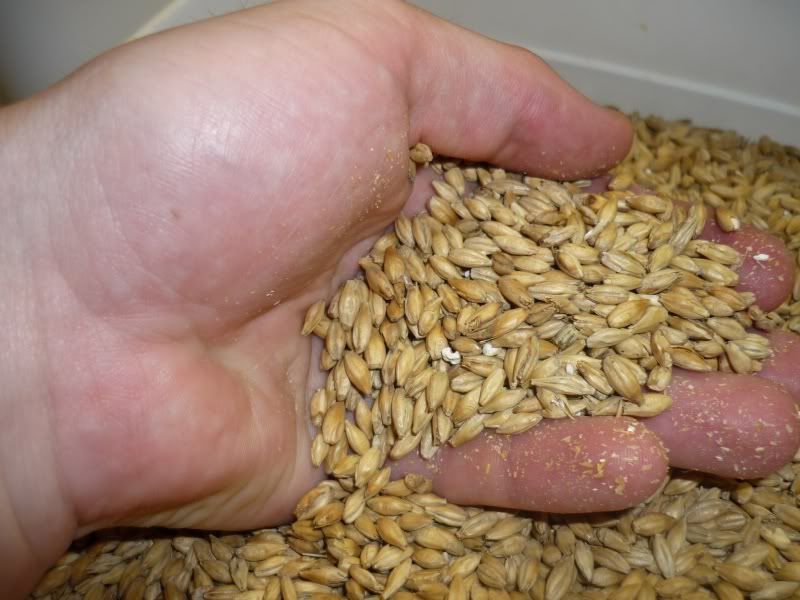
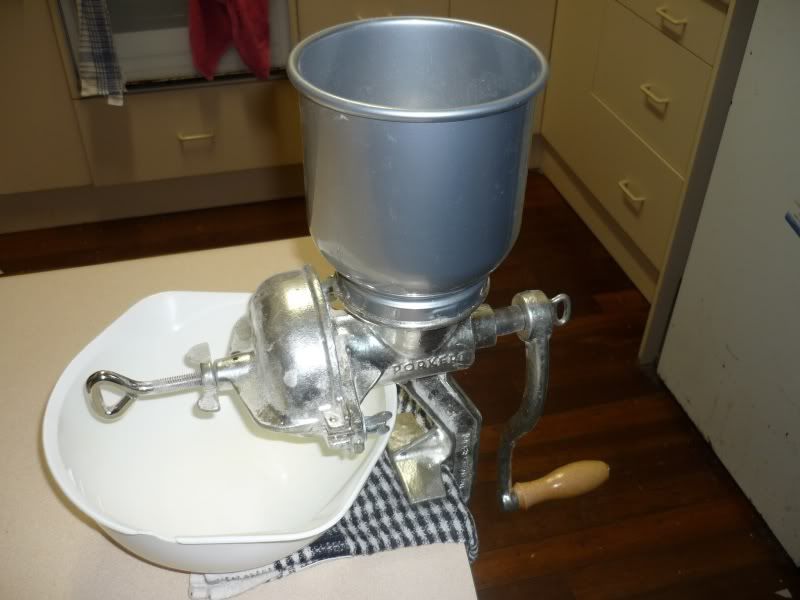
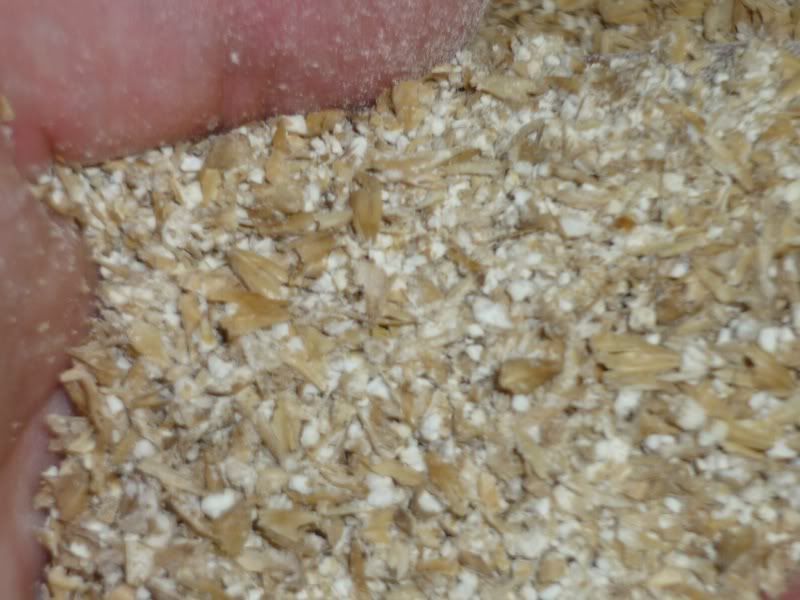
Next I weighed out my hops into little bags. I think the scales will be next for upgrading as I'm currently using a set of scales designed for measuring powder for reloading ammunition (It measures in grains not grams).
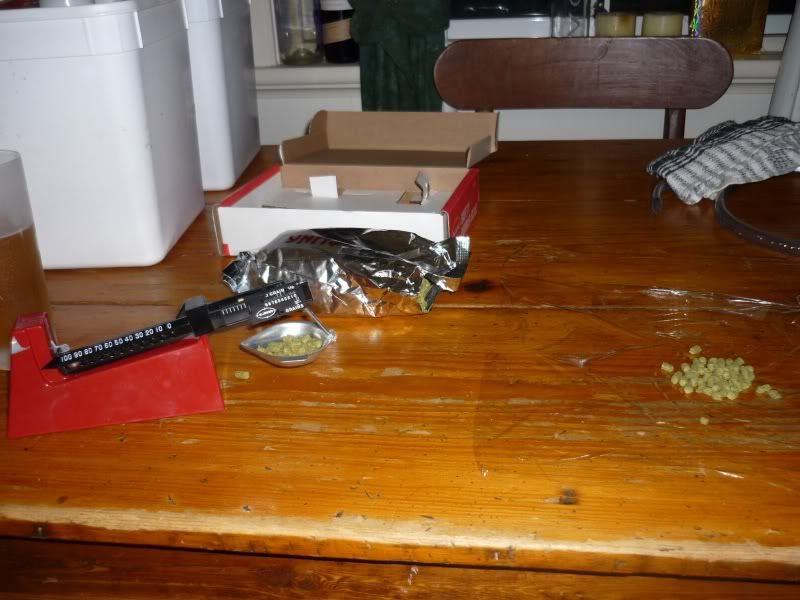
Currently I'm using a 3 ring burner and it seems to work ok
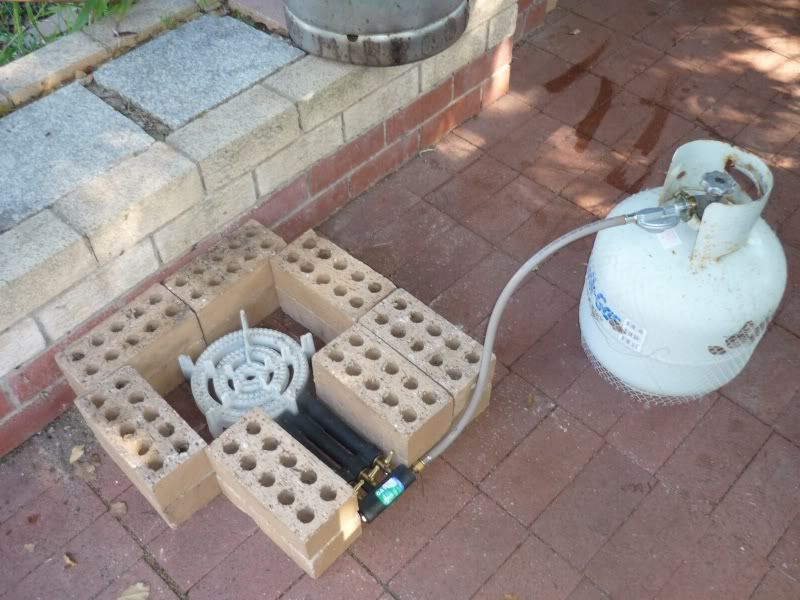
A while back a mate who works in a pub gave me 3 free kegs that had been sitting in the basement, unused for years. The one that I am using for mashing has been cut back so that there is no lip, making it easier to transfer the mash to my improvised lauter tun. I started with a liquid/grist ratio of 3L/Kg, giving me 12L of mash water needed. For this I just used hot tap water at about 54deg C, dumped my grain in and then heated it up to 66 degC while stirring to avoid burnt grains. It took about 10 mins to heat up to temp.
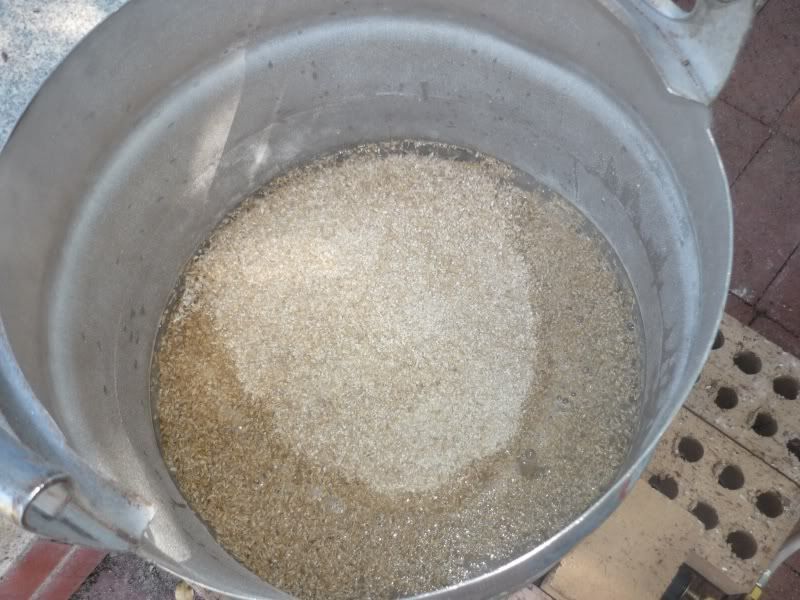
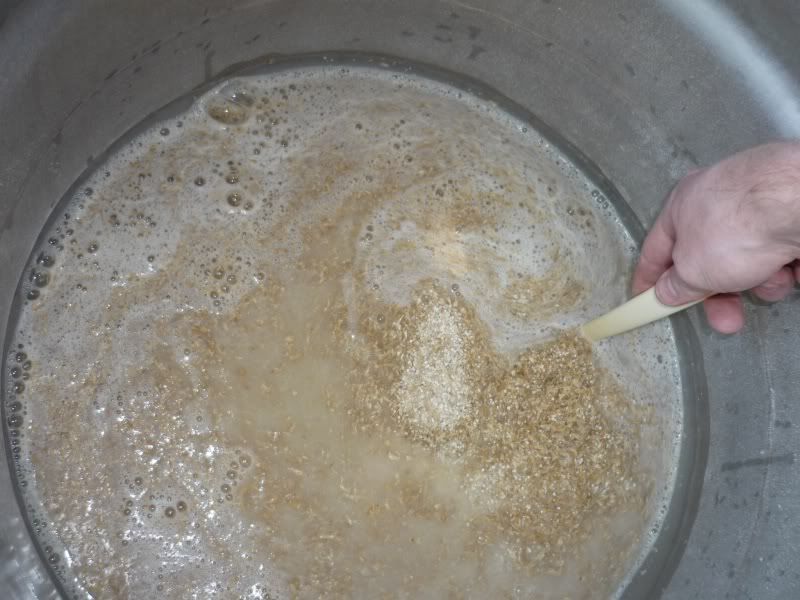
I then covered it in towels and a lid and left it for an hour hour. I did check the temp after 30 mins but it was still sitting at 66, so I just left it.
After the hour, I turned on the gas again to heat up to mash out temp. It took about 5 mins to get up to 72 deg C, then I transferred to my improv lauter tun.
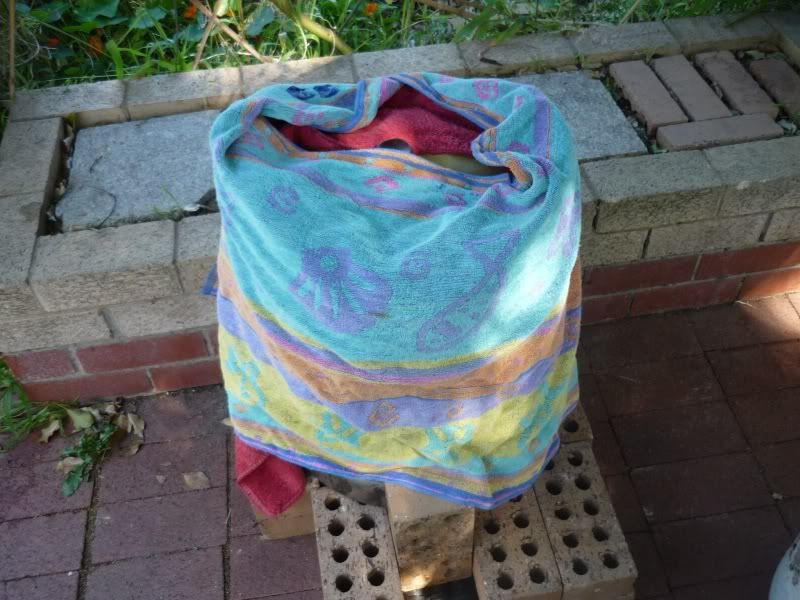
This is probably one of the more dodgey parts of my set up. Its just a foodsafe plastic bucket. To filter the grain, The siphon hose has bee wrapped in SS mesh from a seive and a bit of SS wire to add strength. Ill probably just get a false bottom for my keg.
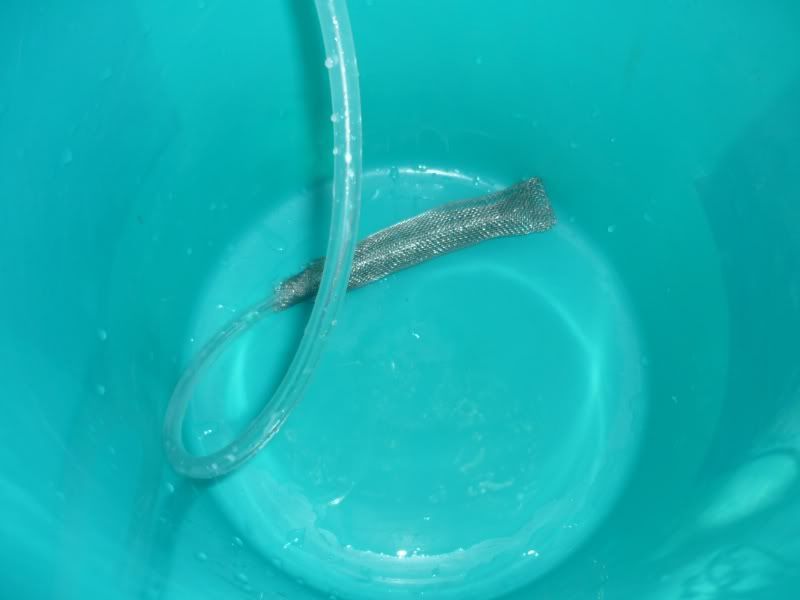
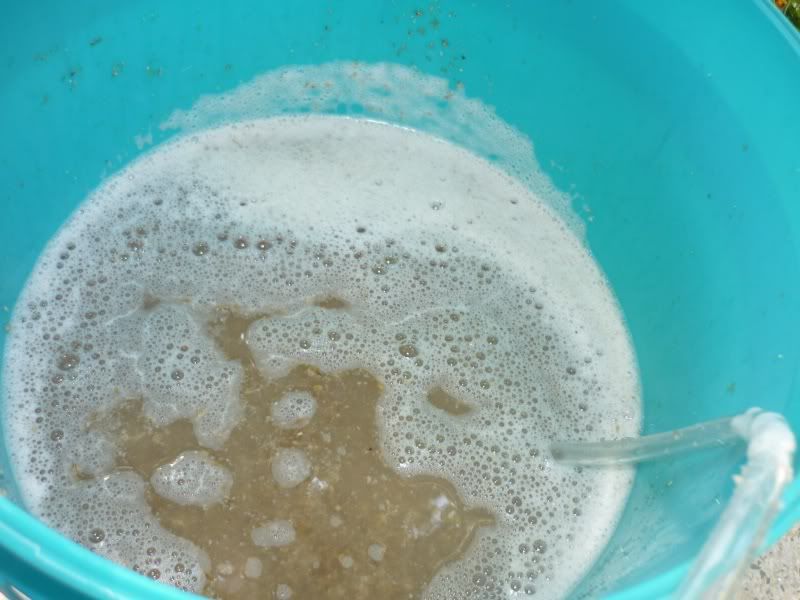
The first stuff to come out is very cloudy but quickly clears. To recirculate and Sparge I use a vegetable steamer to sprinkle the liquid on top. The keg Im using for boiling still has most of the top intact, making it much easier to fit a lid. Total time for wort separation and sparging was about 25mins.
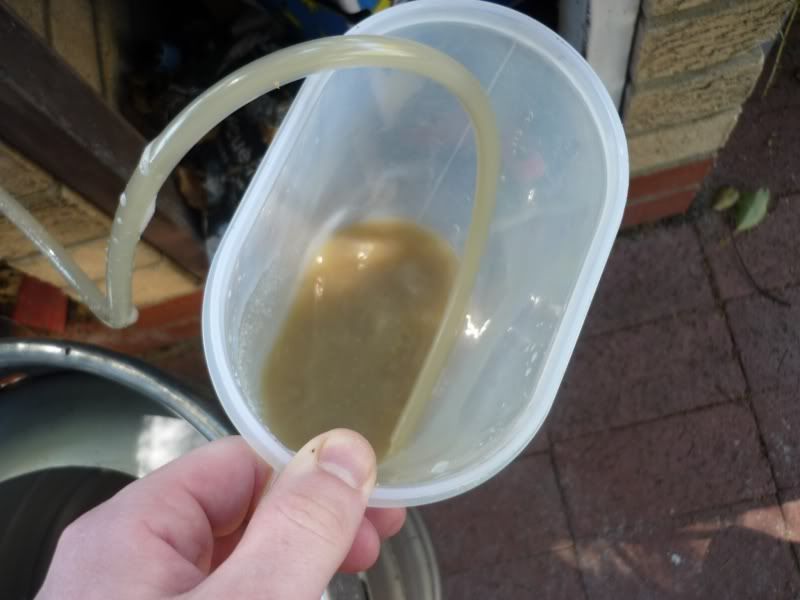
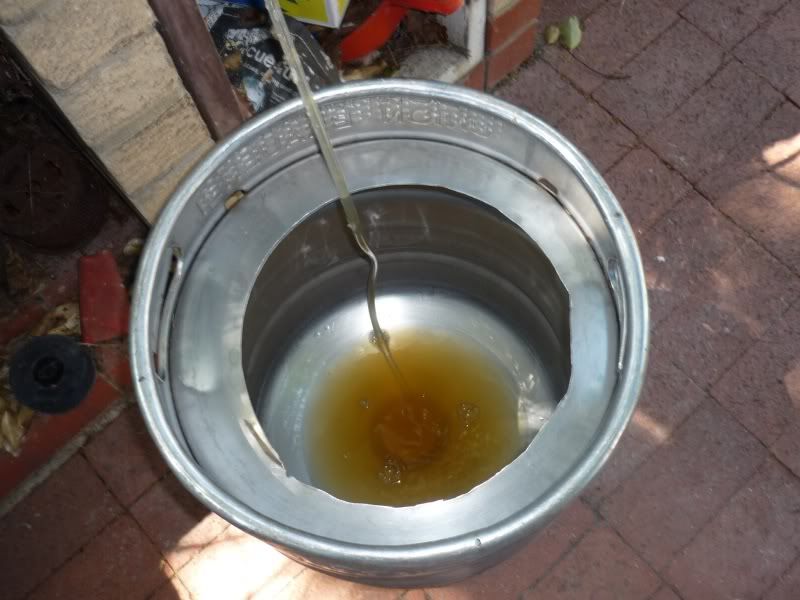
Judging by how clear my last runnings were, I probably should have recirculated for a bit longer.
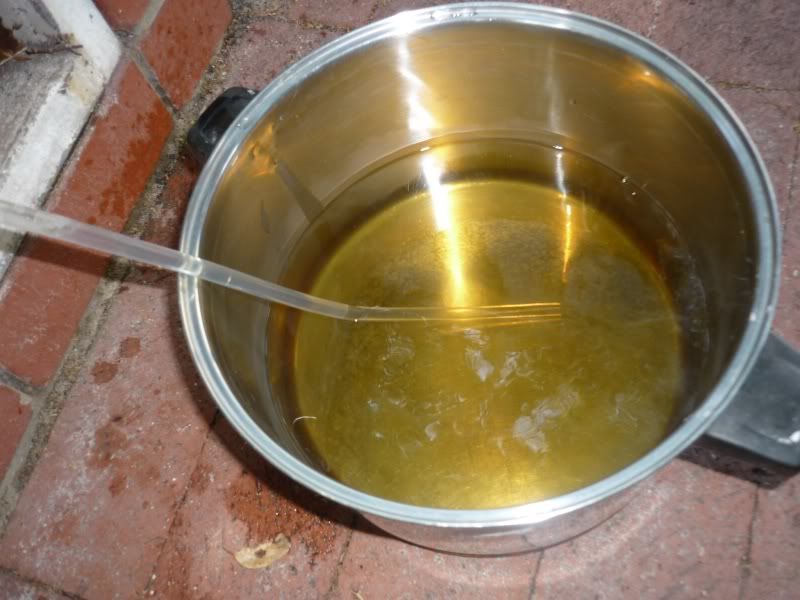
It took my kettle about 45mins today to get from 50degC to first boil. It seems a bit longer than the last couple of times but oh well, it gave me plenty of time to make some lunch and pour a few beers.
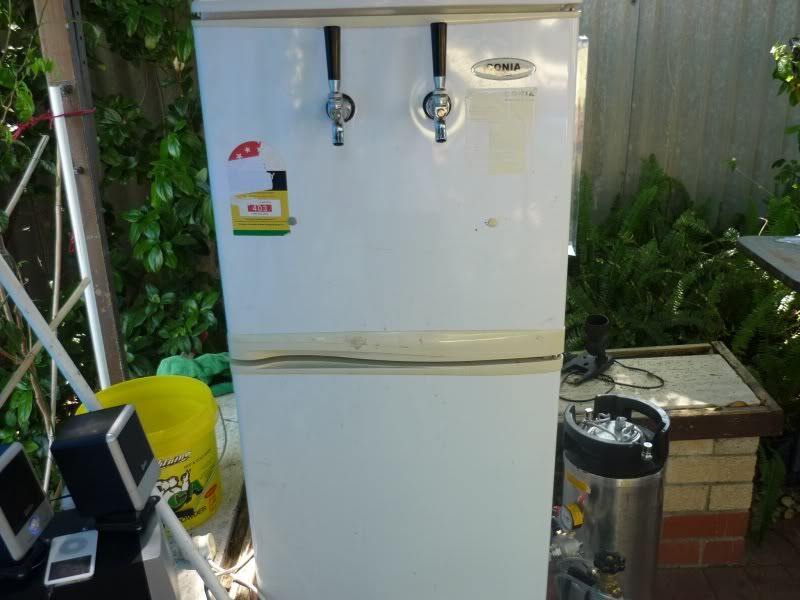
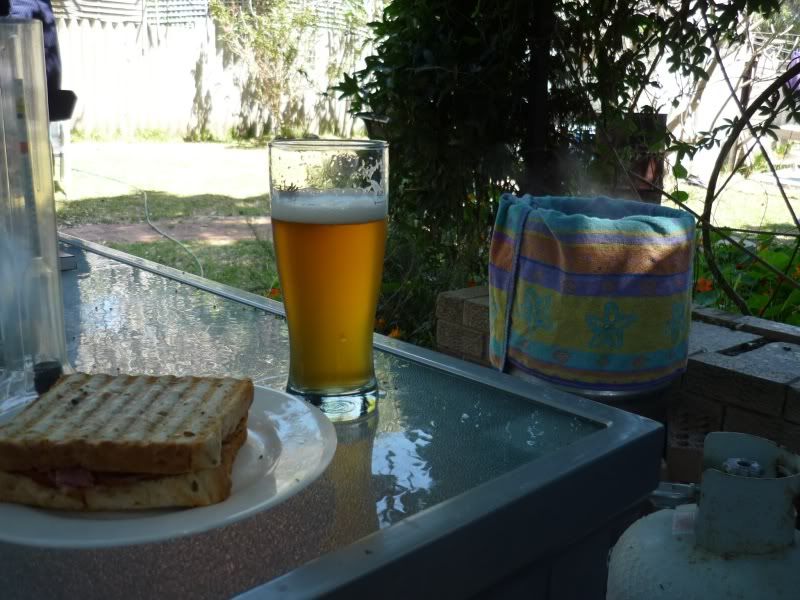
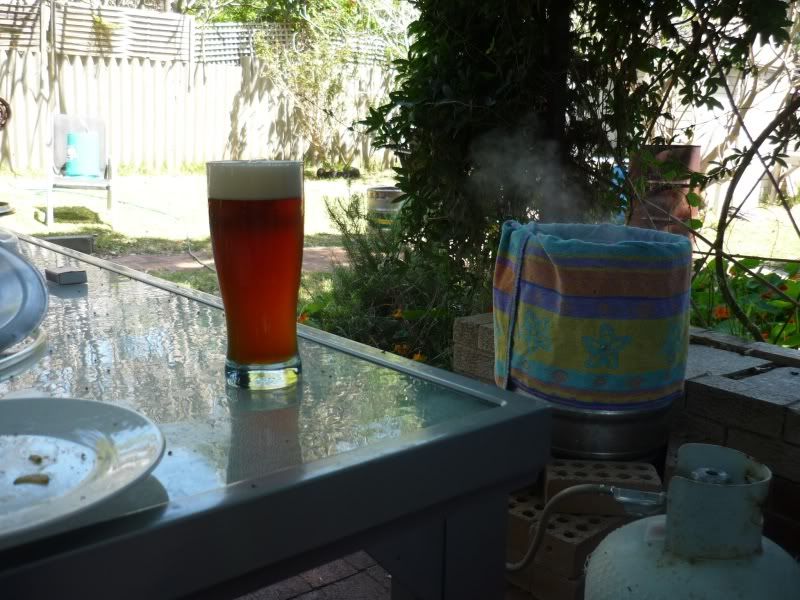
Top is a wheat beer and the bottom is a pale ale. Both the beers were filtered cold with a 1 micron filter so the cloudiness I think is chill haze. I think the culprit was my old improvised immersion chiller made from a short section of copper found in the back yard. It took a full 40 mins to get the wort down to temp. The plate chiller on the right was bought yesterday, so today is its first run, will be interesting to see how it goes.
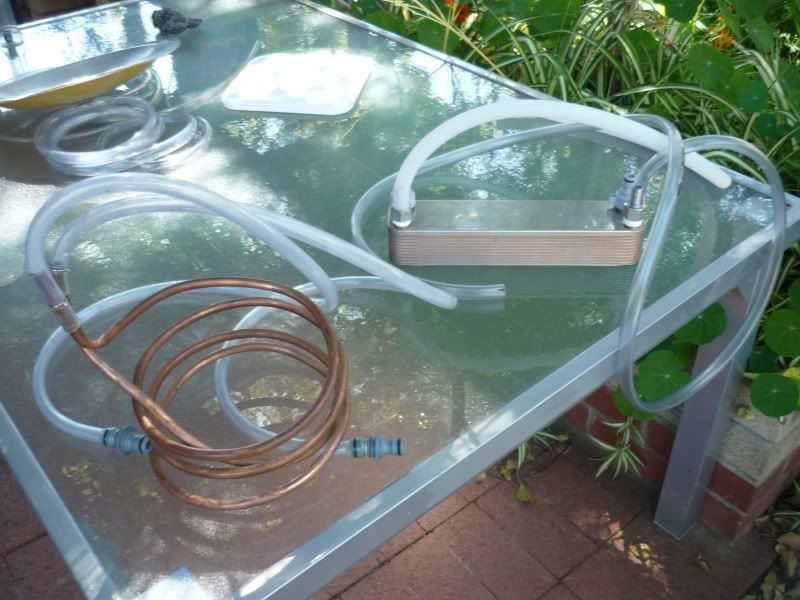
Here we are at first boil, starting the hops additions
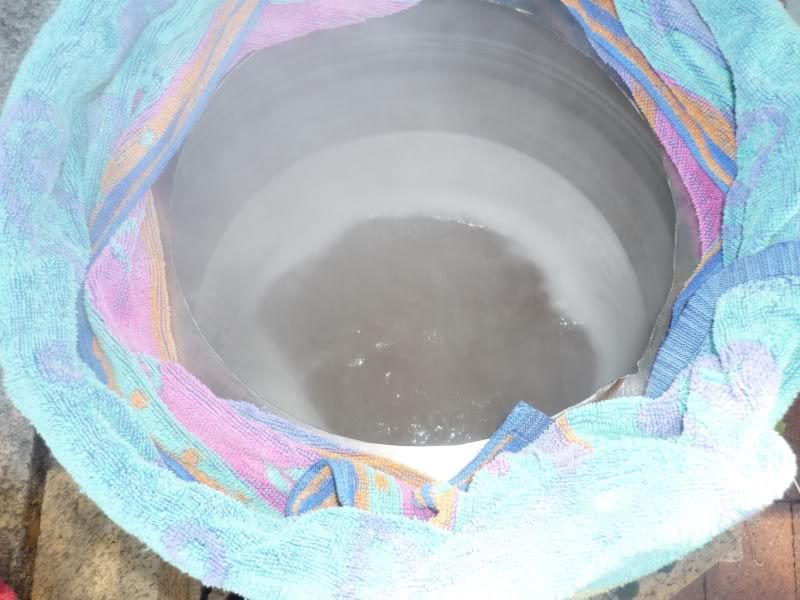
After the boil was done, I moved the kettle to a higher spot and started a whirlpool with the mixing spoon. This spins all the solid crud into a neat cone in the bottom, allowing me to drain clear wort from around it. After leaving it for 15mins, you can see that it is pretty much completely clear, which is the most succesfull attempt at whirlpooling I've had so far.
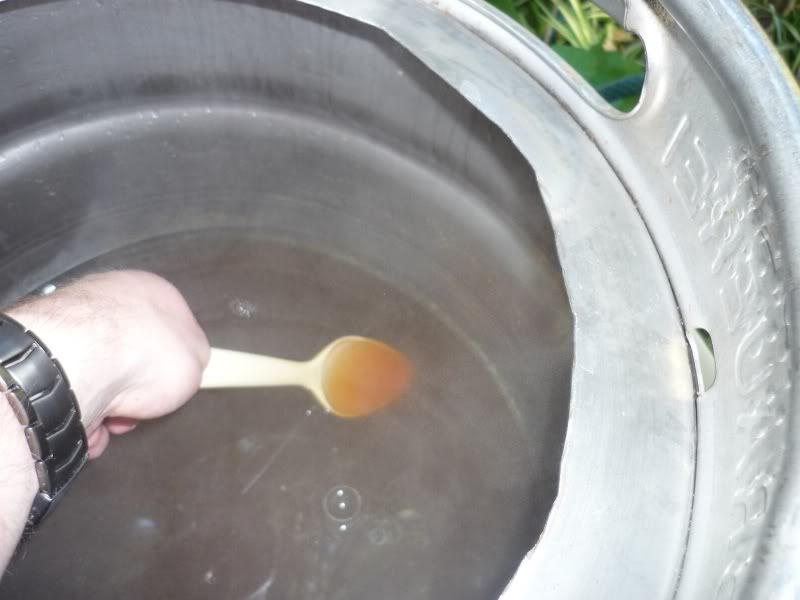
neat little trub cone at the bottom
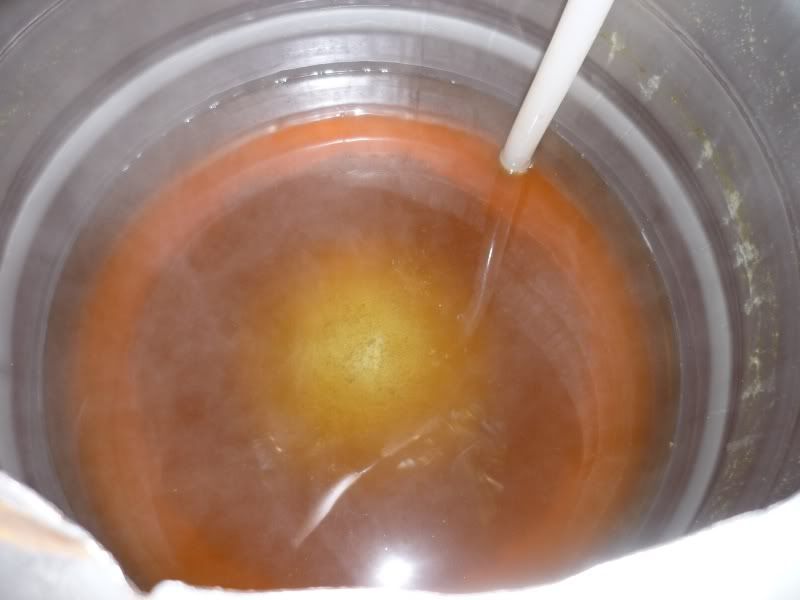
Measuring the OG, I got 1.047, meaning that my overall efficiency is 75%.
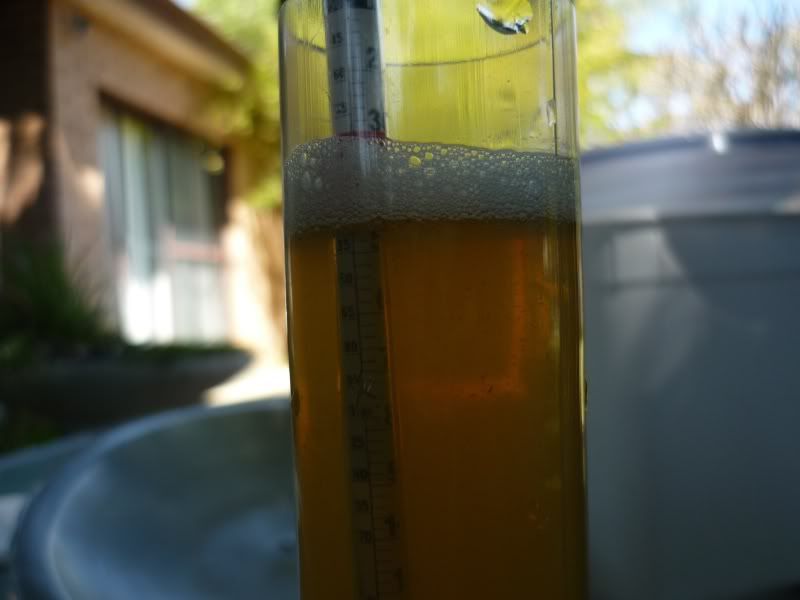
Time to pitch the yeast. This is the first reuse from an original brew using safale US05 i think.

